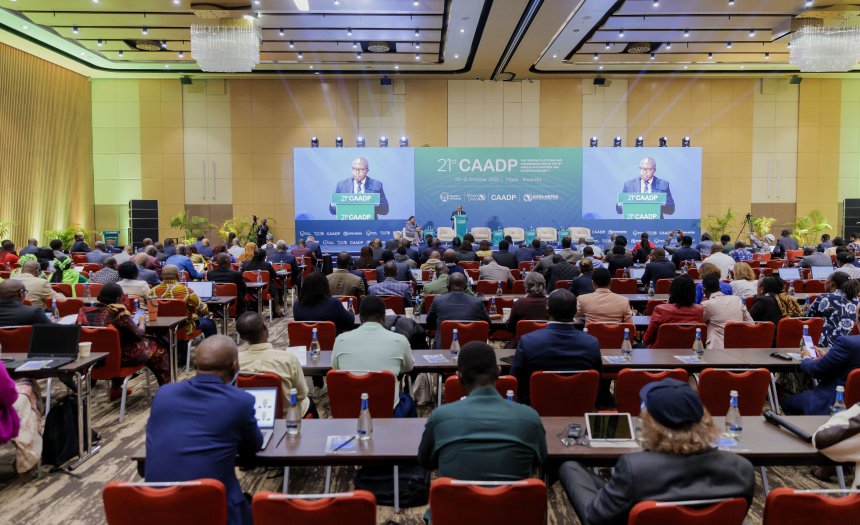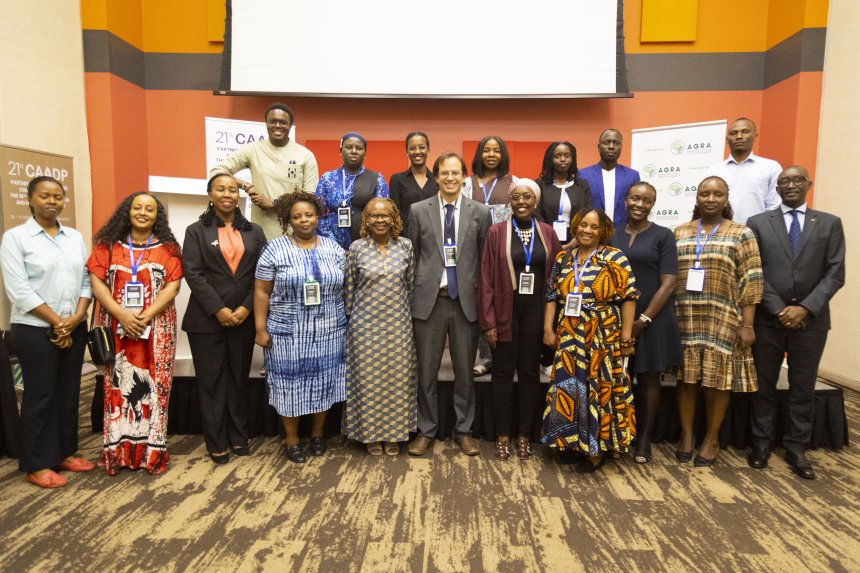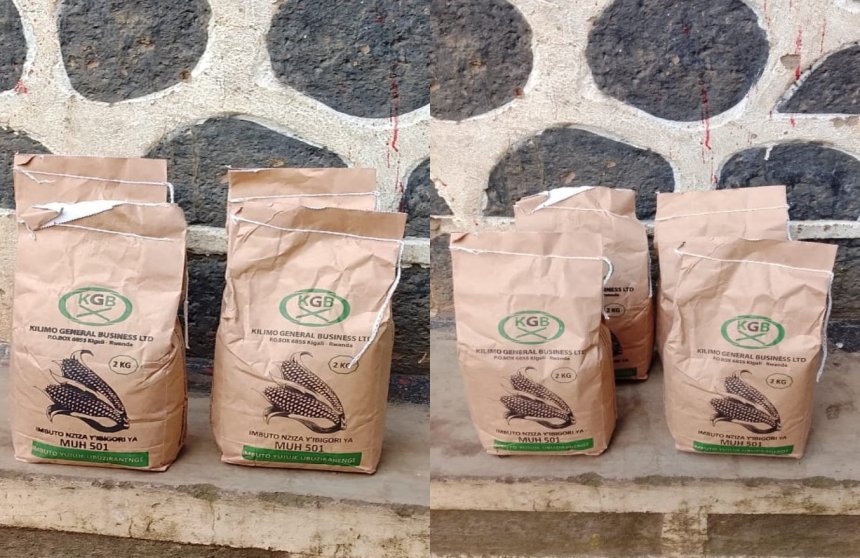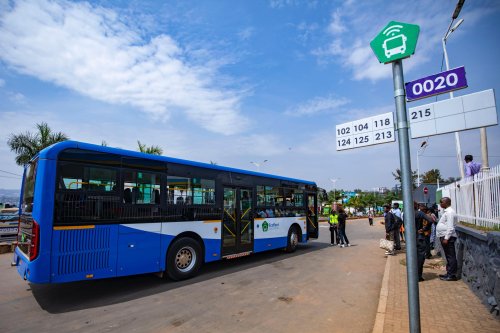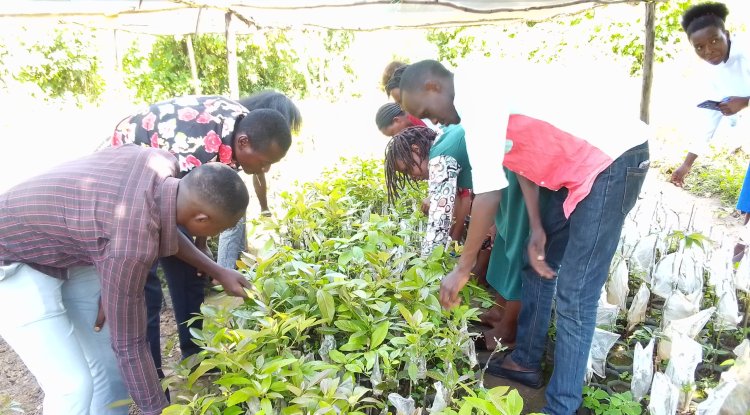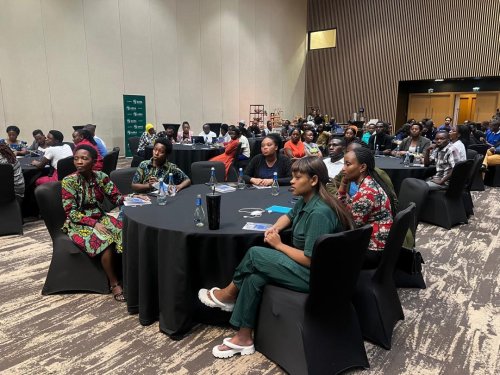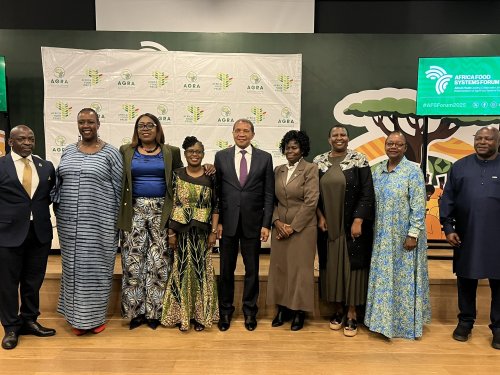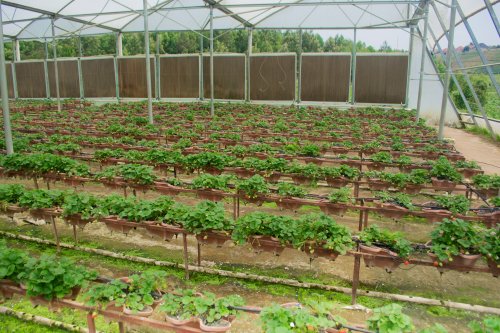Africa Rethinks Its Food Future: Kigali Meeting Charts Path for Sustainable Food Systems
Today at October 30, 2025 As the CAADP Partnership Platform convenes in Kigali this week, African leaders, researchers, and development partners are reflecting on a critical question: What is the true status of Africa’s food systems and what must be done to make them sustainable, resilient, and inclusive?
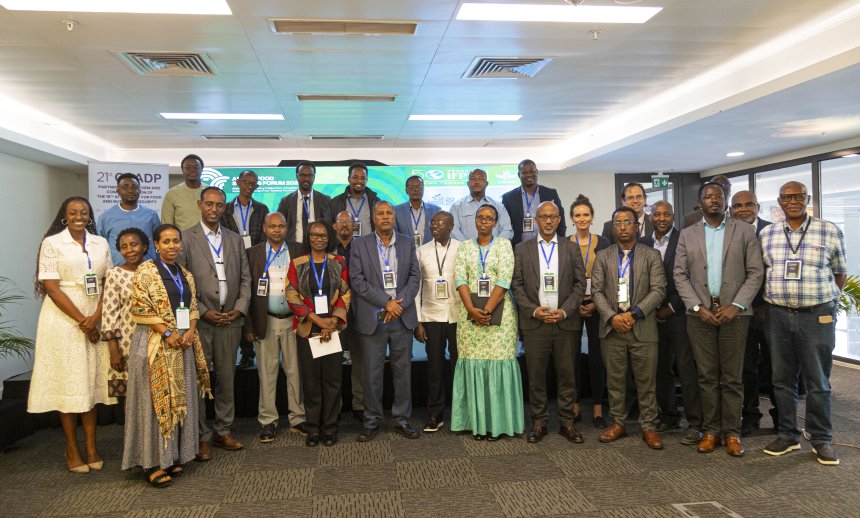
The discussion, themed “Status of Africa’s Food Systems and Monitoring and Evaluation in Africa,” marks a pivotal moment in the continent’s agricultural journey. Over the past decade, AGRA’s Africa Agriculture Status Reports (AASR) have shaped the way Africa understands its agriculture, but the new Africa Food Systems Report (AFSR) represents a significant shift. It moves beyond production metrics to assess the entire food chain, from farming and processing to trade, consumption, and environmental sustainability.
According to Dr. John Ulimwengu, Senior Research Fellow at IFPRI, the 2025 report introduces a comprehensive monitoring framework. He said: “This report introduces a comprehensive monitoring framework built on five domains food supply chains, diets, food environments, systemic drivers, and outcomes.” These domains will guide how Africa measures progress in food systems transformation and accountability across countries.
Dr. Chantal Ingabire, Director General of Planning at Rwanda’s Ministry of Agriculture, emphasized that Rwanda’s experience offers valuable lessons. “We are integrating food systems thinking into our national agricultural policies to ensure resilience, from irrigation and mechanization to post-harvest management,” she said. “The goal is efficiency and long-term sustainability.”
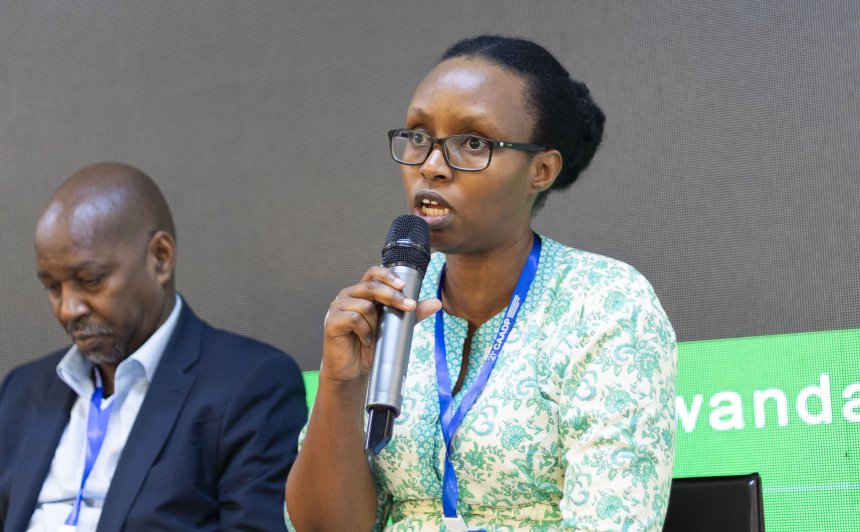 Dr. Chantal Ingabire, Director General of Planning at Rwanda’s Ministry of Agriculture, emphasized that Rwanda’s experience offers valuable lessons
Dr. Chantal Ingabire, Director General of Planning at Rwanda’s Ministry of Agriculture, emphasized that Rwanda’s experience offers valuable lessons
Dr. Hamady Diop, CAADP Post-Malabo Process Coordinator, noted that the findings of the 2025 AFSR will guide implementation of the CAADP Kampala Declaration, which places food systems transformation at the center of Africa’s development strategy for the next decade. “Transitioning from Malabo to Kampala requires a mindset change, one that links policy, investment, and innovation,” he explained.
Panelists also explored how multi-stakeholder partnerships can finance and strengthen Africa’s agri-food value chains. Jonathan Said, Vice President at AGRA, said the shift from agriculture to food systems “deepens our understanding of resilience and inclusion.” He added, “AGRA’s technical expertise in finance and market systems will support countries to operationalize the Kampala CAADP Strategy and Action Plan (2026–2035).”
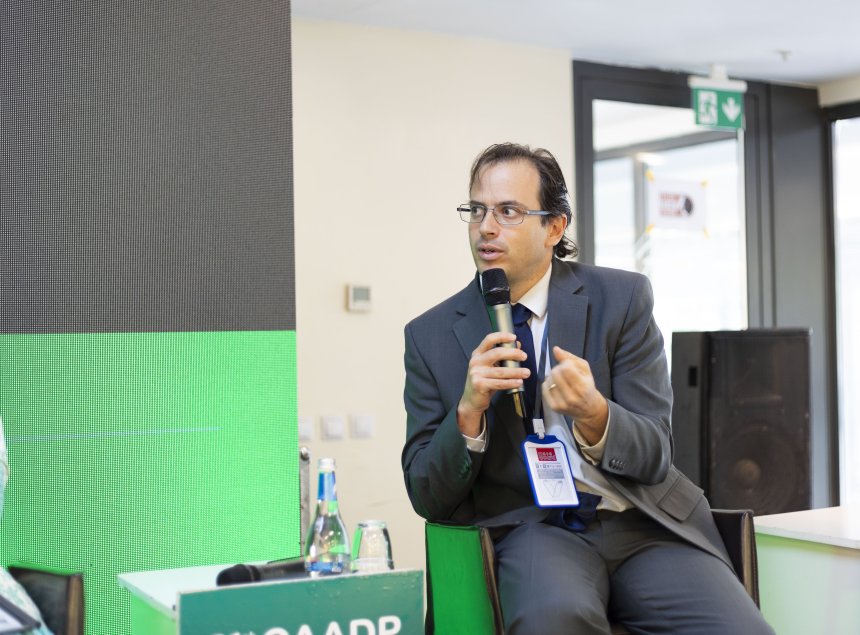 Jonathan Said, Vice President at AGRA, said the shift from agriculture to food systems
Jonathan Said, Vice President at AGRA, said the shift from agriculture to food systems
For Dr. Getachew Legese of ILRI, monitoring and evaluation are key pillars in this transition. Sharing lessons from Ethiopia, he explained how data-driven tracking of progress can align national efforts with continental targets.
Ultimately, the Kigali session underscored a shared belief that transforming Africa’s food systems is not only about feeding the continent, but also about fostering economic growth, equity, and climate resilience.
As the discussions continue toward the CAADP Kampala Declaration, Africa’s vision for the next decade is clear: a food system that is data-informed, youth-driven, and capable of nourishing both people and the planet.
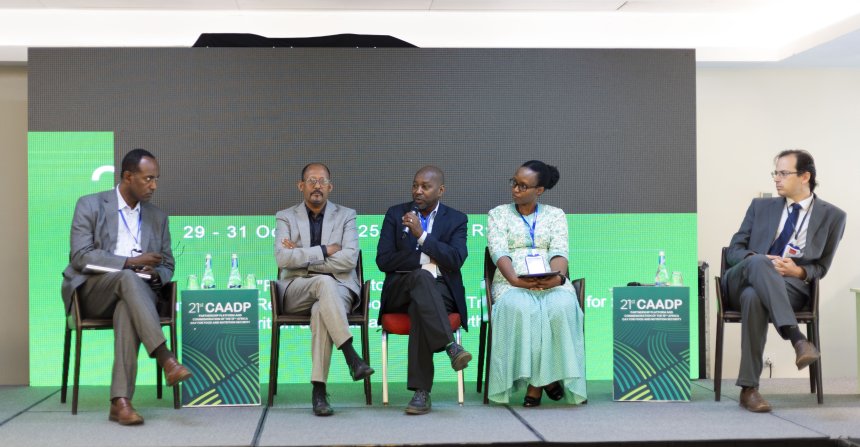 Kigali panelists discuss the Status of Africa’s Food Systems and pathways toward a resilient and inclusive future
Kigali panelists discuss the Status of Africa’s Food Systems and pathways toward a resilient and inclusive future
